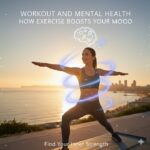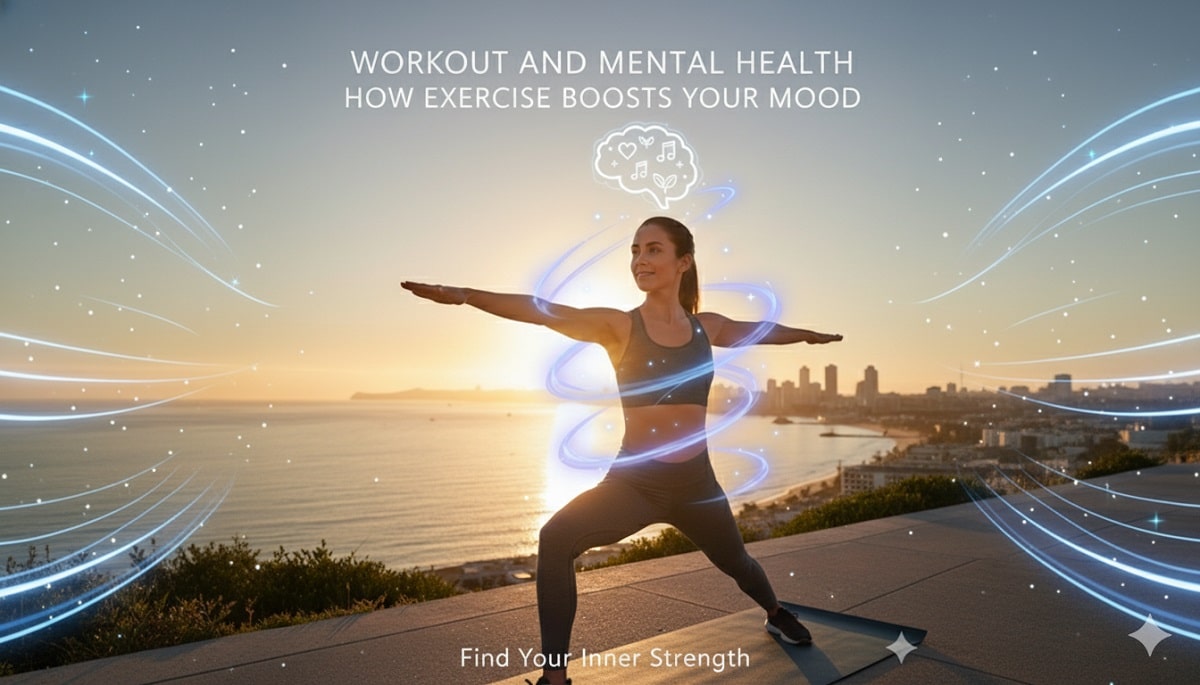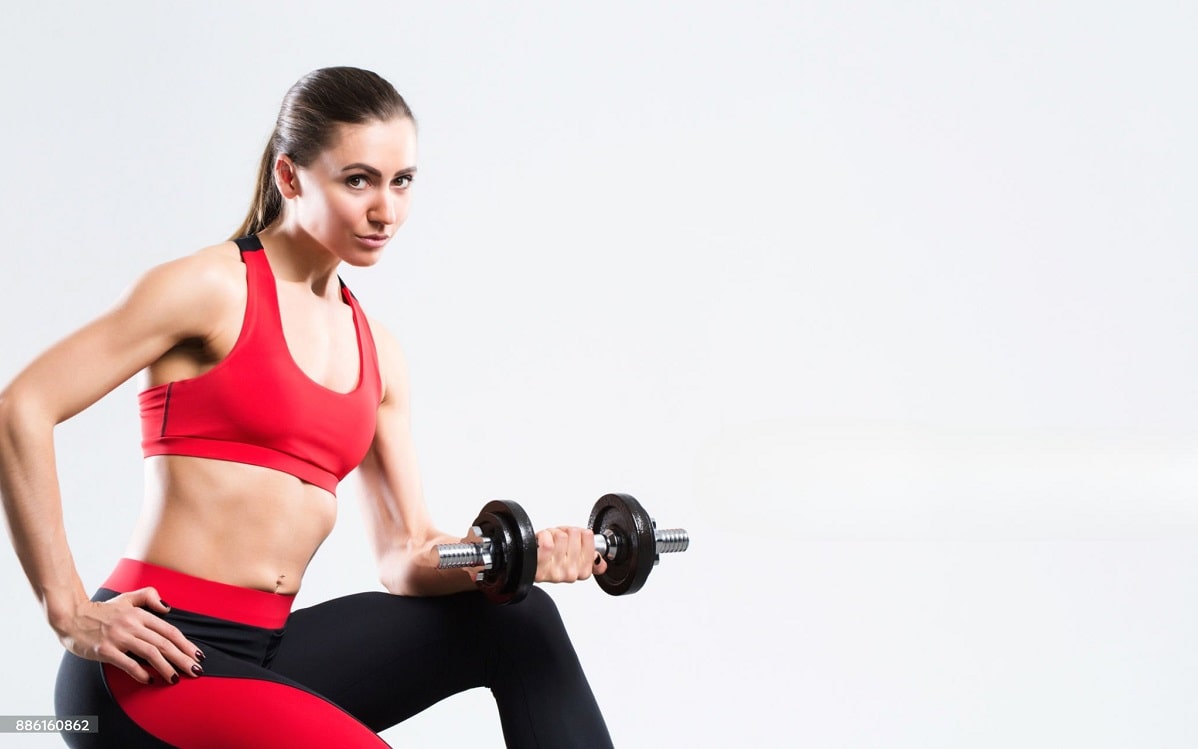Can moving your body really change your mind? Have you ever felt low for no reason? Like, the world’s dull, colors faded, energy gone. Then one day, you walk outside, move a little, maybe stretch, and suddenly something shifts. Your chest feels lighter. Your thoughts, quieter. That’s not random, its movement doing its magic.
Exercise isn’t just about toned arms or abs. It’s something deeper. Something raw. When your body moves, your mind listens. It responds—chemical fire. Nerves calm. Suddenly, you’re not just surviving the day. You’re living it.
So, moving your body really can change your mind. The science says so. But so does experience. This story? It’s about that bridge between body and brain. About how sweat, breath, and rhythm can rewrite your mood.
Science Behind Exercise and Mental Health
Let’s start with the basics. Your brain’s a busy place full of signals, hormones, and chaos. When you move, things shift. Endorphins kick in. Serotonin rises. Dopamine lights up. It’s your body’s natural happiness cocktail.
You feel calm. Focused. Grounded. The fog clears.
Exercise also drops stress hormones like cortisol. So when life feels heavy, movement helps your body fight back. Even a slow jog or a short yoga session can balance your mind’s storm.
It’s wild. Something as simple as moving your arms and legs can literally change your brain chemistry. No pills. No big drama. Just movement.
-
Exercise: The Natural Antidepressant
Depression. It’s heavy. You wake up tired, you drag through the day, and your mind whispers, What’s the point? But here’s the thing — exercise might be your quiet weapon.
Not a cure, sure. But a game changer. Scientists compare it to antidepressants, and sometimes, it works just as well.
You move, your brain grows. Literally grows. New cells in the hippocampus — the part that controls mood and emotion. Endorphins flow, giving you a natural high. Even a 20-minute walk can shift something inside.
It’s not just movement. It’s hope. A message to your brain: “I’m still here. I’m trying.”
-
Exercise and Anxiety: Calming the Storm
Anxiety feels like static. A buzzing you can’t turn off—heart racing. Thoughts jumping. And yet, exercise helps turn down the noise.
When you work out, your focus changes. You stop overthinking. You breathe. You feel your heartbeat. For a while, your brain quiets. It’s a break from the chaos.
Over time, your body learns to calm down. Lower heart rate, steadier breath, less panic. It’s science and soul working together.
You don’t have to run a marathon. Sometimes, just a walk or a few stretches on your living room floor do the trick. You move, the mind follows.
-
The Confidence That Comes with Strength
There’s something powerful about strength. Real strength. The kind that builds slowly, one rep, one breath, one small win at a time.
You start where you are. You mess up. You sweat. But one day, you notice you’re stronger. Not just in your body. In your mind, too.
That’s self-esteem being rebuilt, not from looks, but from proof. You did it. You showed up. You kept going when it was easier to quit.
Every push-up, every mile, every stretch, they whisper, You can. And slowly, that voice becomes louder than your doubts.
-
Group Workouts: Moving Together, Healing Together
Humans aren’t meant to do everything alone. We crave connection. And group workouts? They bring that energy.
Whether it’s a gym class, a run with friends, or a yoga session in the park — moving together changes things. There’s laughter. Accountability. Support.
Someone cheers you on, and suddenly, you push a little harder. You smile without thinking. That loneliness fades for a while.
Movement becomes community. And community heals.
-
Mindfulness in Motion
You’ve heard of mindfulness. Being present. Not lost in yesterday or tomorrow. Exercise teaches that, naturally.
You start noticing the rhythm of your breath, the sound of your feet, the pull in your muscles. For a few minutes, it’s just you. The world fades. Worries pause.
That’s peace in motion. Running, dancing, cycling — doesn’t matter. It’s all meditation with sweat. Mindful movement brings your thoughts home. It reminds you that being in your body can feel safe.
-
Sleep Better, Think Better
Bad sleep wrecks everything: mood, focus, and patience. Exercise fixes that.
Move during the day, and your body resets its inner clock. Your temperature rises, then drops. That drop signals rest. You fall asleep faster. You stay asleep longer.
And when you wake, you’re clear-headed. Less cranky. Ready to live instead of just existing. It’s simple: move more, rest better, think clearer.
-
Consistency Over Perfection
People think you need crazy workouts to feel better. Nope. You need to show up. Consistently. Five minutes today. Ten tomorrow. Walk, stretch, dance, whatever. The brain doesn’t care how big the effort is; it just loves the pattern.
Routine brings stability. It gives your day structure. It reminds your mind that life has rhythm again. Even if all you do is roll out your Gym Mats and stretch for a few minutes, that counts—small steps, big changes.
-
Letting Go of Stress — One Rep at a Time
Stress builds up like a pressure cooker. You feel it in your shoulders, your chest, your jaw. Exercise is the release valve. Every punch, every push, every drop of sweat, it’s your body saying, “Let it out.” And you do.
You breathe harder. You shake off the tension. Slowly, your muscles loosen. Your thoughts, too. It’s therapy without words. A way to let go when you can’t talk it out.
-
Long-Term Benefits — A Stronger Mind for Life
Exercise doesn’t just fix the moment. It builds protection for the future. Regular movement strengthens your brain. Fights off memory loss. Keeps mental health steady as you age. It’s like long-term insurance for your mind.
And resilience? That’s the real gift. You bounce back faster. From stress. From heartbreak. From life. Over time, your body and brain become teammates. You move through the world lighter, sharper, calmer.
-
When Motivation Fades
Here’s the truth: some days, you won’t feel like moving. That’s okay. Depression steals energy. Anxiety steals focus. Start small. Stretch. Breathe. Take a short walk. Just something. Because motion creates motivation — not the other way around.
You’ll have off days. Everyone does. But every small movement tells your brain, “I’m still in this.” And that message matters. If it’s too hard alone, find help. A workout buddy. A coach. A therapist. Movement isn’t weakness, it’s a quiet kind of fight.
-
Rest Is Part of the Process
Don’t burn out chasing balance. Rest is part of healing. When you rest, muscles rebuild. Mind resets. Energy returns. Overdoing it only breaks the rhythm you’re trying to create.
So, take days off. Watch a movie. Sleep. Stretch gently. Your body will thank you, and your mind will follow. It’s not laziness, it’s strategy. Recovery is how strength grows.
-
Movement as a Way of Life
Exercise shouldn’t be punishment. It should be joy. Find what feels good: dancing, swimming, boxing, walking. Mix it up. Keep it fun. When you love the movement, you’ll stick with it.
Don’t just track numbers. Track feelings. Notice how you breathe easier. Sleep deeper. Laugh more. That’s the real progress. One day you’ll realize movement’s not something you do. It’s part of who you are.
Conclusion
Exercise is more than fitness; it’s medicine. Not the kind you swallow, but the kind you live. When you move, you release something old: stress, pain, fear. You remind your body it’s still alive. You remind your mind that it can still find light.
Start small. Walk. Stretch. Move however you can. It doesn’t matter how perfect it looks. What matters is that you move. Because movement is hope, and hope it’s everything. So, go. Move your body. Free your mind. One step. One breath. One heartbeat at a time.












